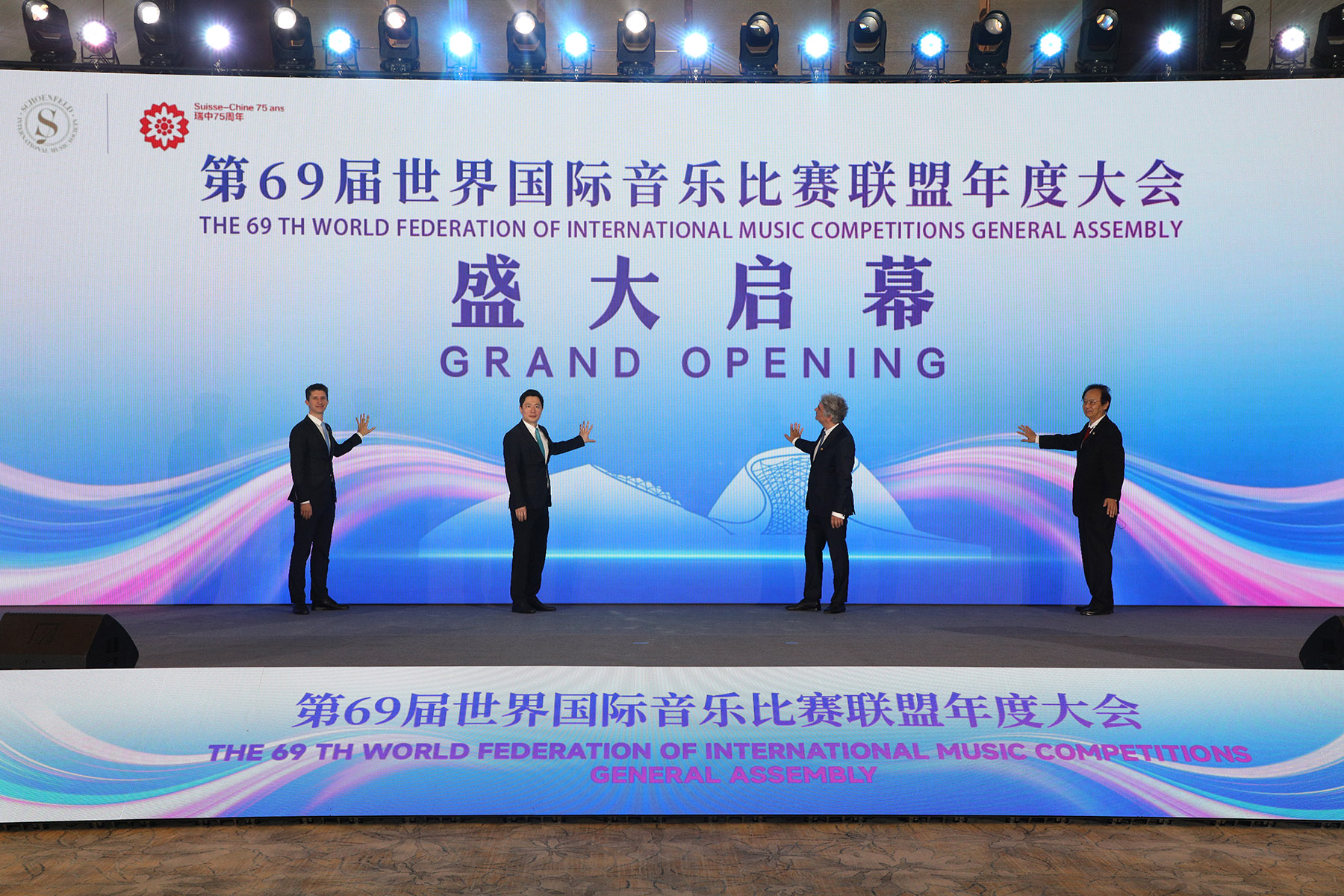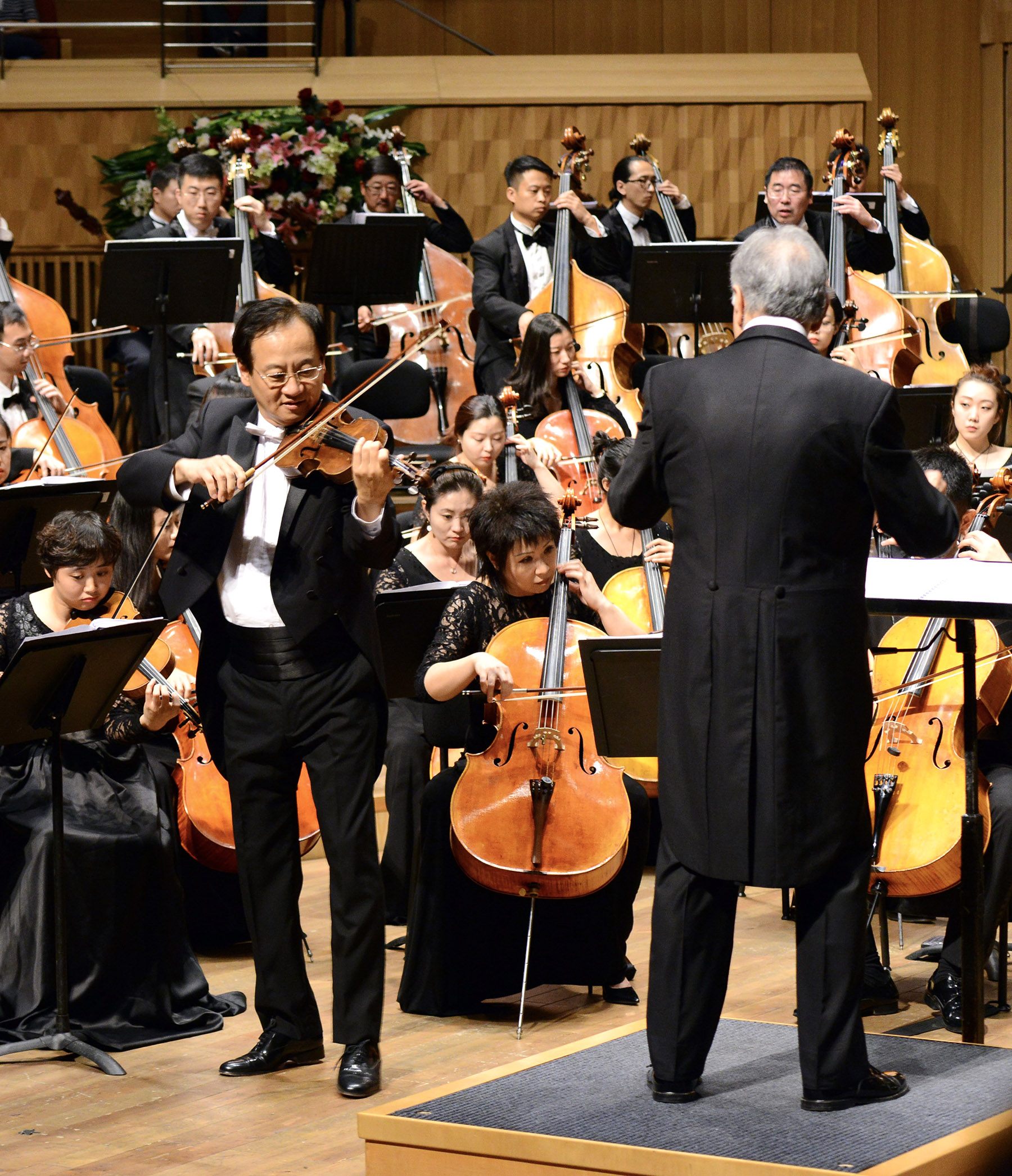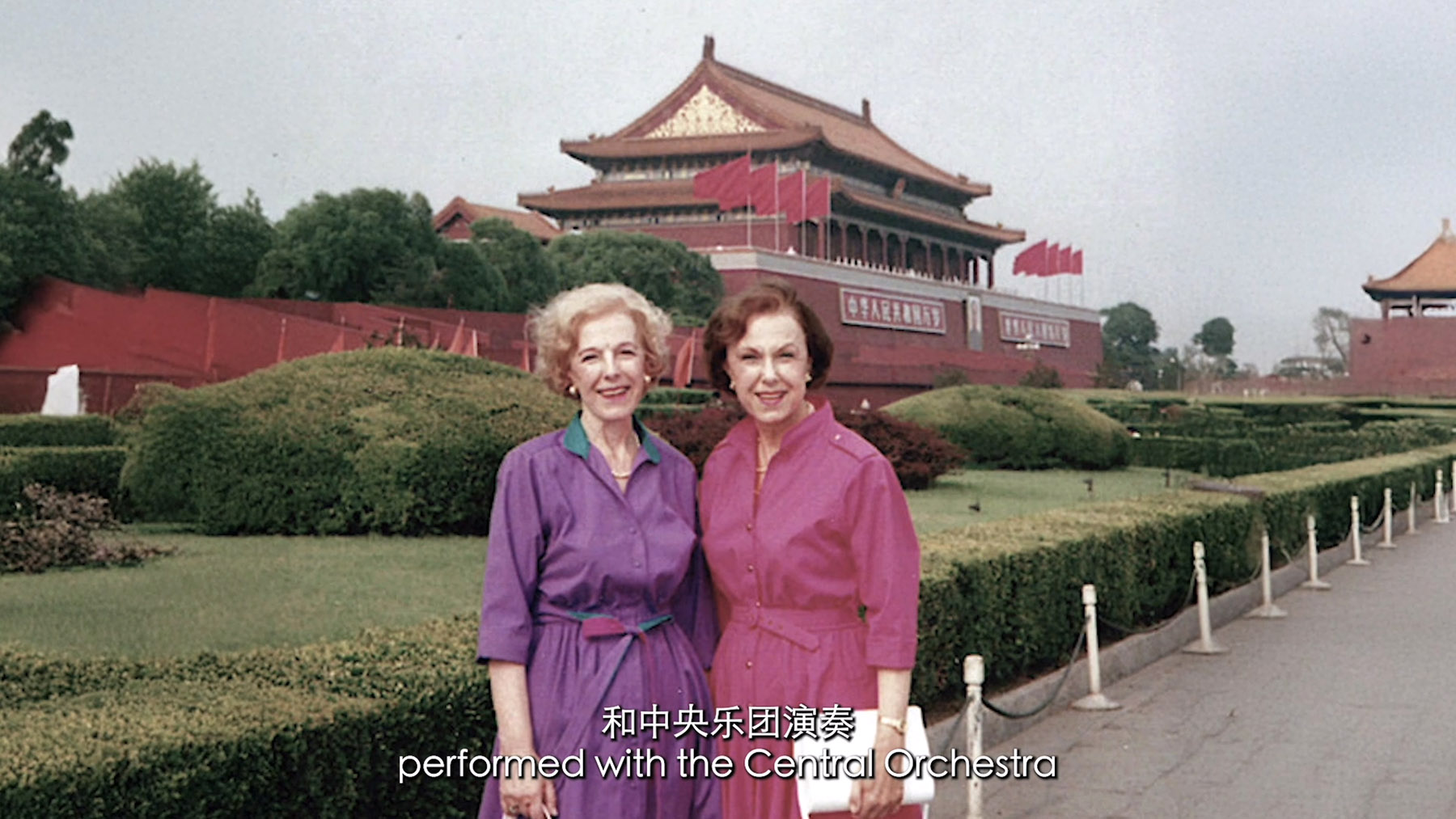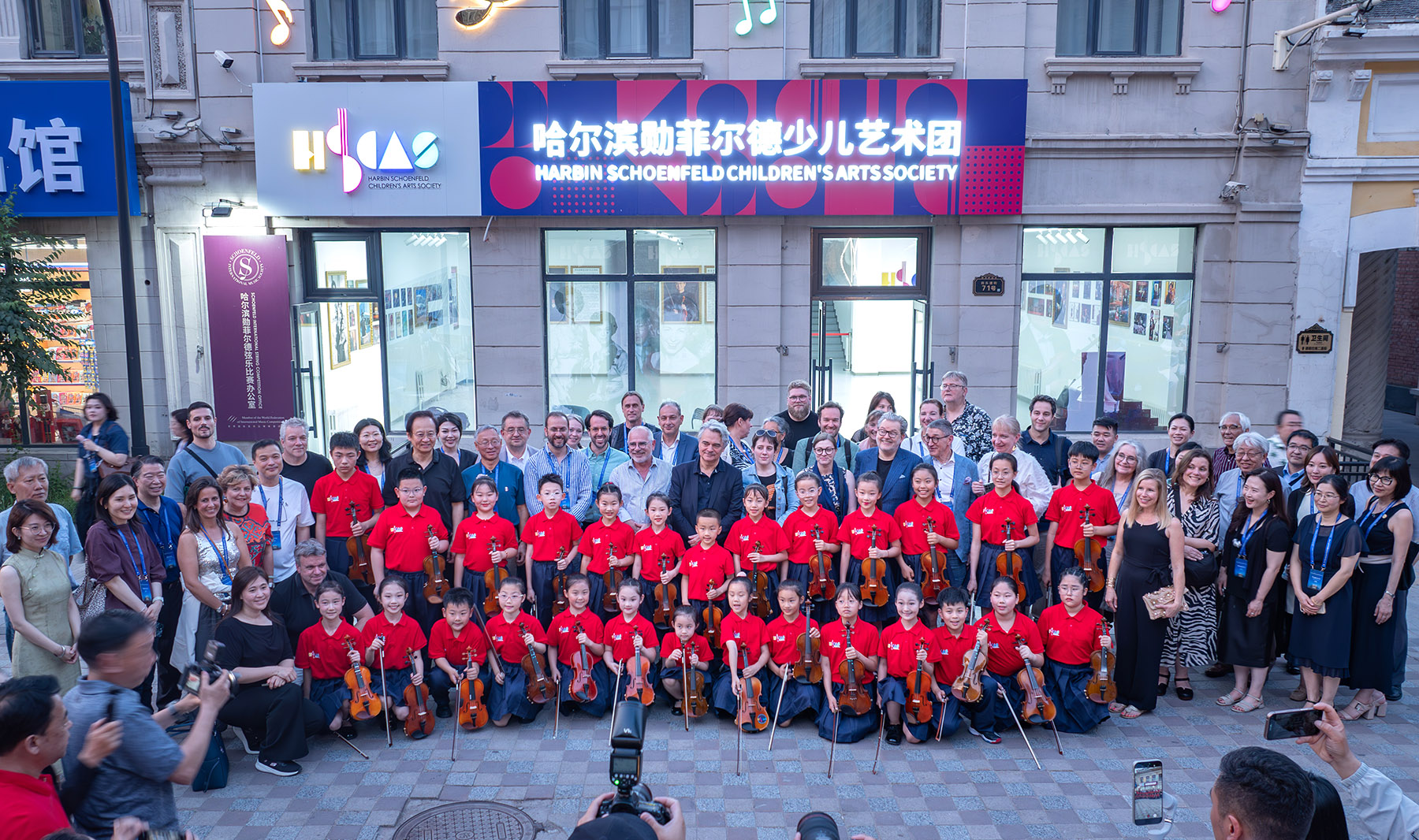Violinist Alice Schoenfeld's legacy helps Harbin harmonize tradition, hone talent and host international events, Cheng Yuezhu reports.

When Alice Schoenfeld (1921-2019), an internationally acclaimed violinist and educator, visited Harbin in Heilongjiang province around a decade ago, she exclaimed, "It's a beautiful city. It's a beautiful country. This year's competition (takes place) in beautiful Harbin. It is a music city."
The competition she was referring to is the Alice and Eleonore Schoenfeld International String Competition, a biannual music contest she founded in 2012. The first edition was held in Hong Kong in 2013, and since 2014, at the initiative of her student, violinist Xue Suli, the competition has been based in Harbin.
A decade later, her legacy continues to illuminate Harbin's music scene, as Xue works to contribute to the city's music development in her honor, and young students rise up to take up the baton.
READ MORE: Composer's memories help shape the future
This summer, Harbin's music scene is particularly vibrant, with the World Federation of International Music Competitions hosting its 69th general assembly here, the first time for any Chinese city. The Harbin Summer Music Festival is welcoming its 37th edition, along with another iteration of the Schoenfeld International String Competition between July 11 and 25.

'Lifelong mentor'
In a new documentary by Heilongjiang Film Studio, titled The Spirit of Strings, Xue recalls fond memories of Alice Schoenfeld and her sister, cellist Eleonore Schoenfeld (1925-2007), who both taught at USC Thornton School of Music in the United States as professors and established early ties with China's music scene.
"They came to China soon after the reform and opening-up policy was launched, and performed Brahms' Double Concerto with the Central Philharmonic Orchestra of China (today's China National Symphony Orchestra)," Xue says.
Recognizing the talent and diligence of Chinese music students, the sisters helped those in conservatories of Shanghai, Beijing and Liaoning province's Shenyang to apply for USC and secure scholarships.
Xue himself was one of the students. He studied at the Shanghai Conservatory of Music and then entered the China National Symphony Orchestra. In 1986, he was enrolled in the USC Thornton School of Music to study under Alice Schoenfeld.
"When I was first admitted, she helped me every step of the way to obtain a scholarship that covered both tuition and living expenses. They even drove me to rehearsals and performances. I was deeply, deeply moved," Xue says.
"She was like a parent to me, as well as being a lifelong mentor."

Benefiting students
Following the passing of Eleonore, Alice Schoenfeld established a music foundation to support the launch of the string competition.
After Xue proposed to shift the competition to Harbin, the city where he grew up, Alice researched the area and found it to be an ideal choice.
Although Harbin only began to develop into a modern city at the turn of the 20th century, it boasts a continuous and rich connection with music. It hosted one of China's first symphony concerts in 1908 and established one of the country's first symphony orchestras that same year.
"This film is not only a documentary chronicling the artistic life of my mentor, professor Alice Schoenfeld, but also a heartfelt reflection on the development of Harbin's musical culture," Xue says.
Xue was born in 1959 into a music family in Raohe county, Heilongjiang province, and grew up in Harbin. In 1980, his father, violinist and composer Xue Chengqian, and his mother, dancer Zhang Juhua, founded a children's violin ensemble in Harbin, an organization dedicated to training young violinists and leading them to perform at major public and cultural events.
In 2024, the Harbin Schoenfeld Children's Arts Society was established on the foundation of that ensemble, in tribute to both Xue's parents and the Schoenfeld sisters.
Now, Xue serves as the president and artistic director of the Schoenfeld International String Competition, aiming to carry forward Alice Schoenfeld's vision of spreading love through music around the world.
"She believed that Harbin has many young talents who deserve more opportunities to be recognized. Meanwhile, the competition will bring more musical talents to the city, which will benefit students and the broader community," Xue says.
Every country has its own songs, art forms, and modes of expression, and musicians can learn from each tour and each competition. But two things are universal: the enthusiasm they have for music, and the pleasure they take in playing it. Music makes people more well-rounded citizens in the world, Alice Schoenfeld once said.

Playing a leading role
A preview of the documentary and a visit to the Harbin Schoenfeld Children's Arts Society were among this year's World Federation of International Music Competitions' activities. With panel discussions and roundtables between June 25 and 29, this year marks the first time that the federation held its general assembly in a Chinese city.
The organization, founded in 1957 in Geneva, Switzerland, is a member of the International Music Council, an official partner of UNESCO. Its members include more than 120 international major music competitions from 112 cities of 39 countries.
The Schoenfeld competition joined the federation as a member in 2017, and in 2019, it was granted the hosting rights of the general assembly through an internal vote, according to Xue.
He adds that to select Harbin as the host city for this year's general assembly reflects the organization's trust in both the competition and the city itself, recognizing Harbin's strong cultural infrastructure, such as theaters and concert halls, and its ability to play a leading role in cultural exchanges.
"The global exposure of this year's general assembly will further enhance Harbin's international influence as a music city. For Harbin, this is not just a brief cultural celebration, but a pivotal moment in the city's musical and cultural development," he adds.
The event brought together experts from leading international music competitions and institutions to discuss key topics in today's classical music landscape. Sessions explored the role of music-related events in facilitating cross-cultural dialogue and mutual learning, the latest music education methodologies, particularly in China, and the impact of technological advance on the music industry.
ALSO READ: Music mavericks set the tone for China's next generation
"It is very meaningful to have an international conference, especially here in Harbin, in this city with many cultural influences, and bring people together through music, something all of us love and relate to. Music is a medium that brings us together," says Florian Riem, secretary general of the federation.
"I think in these times, meeting each other, coming from different backgrounds, is more important than ever, because meeting means listening and learning. Music and musicians can teach the world that listening is sometimes more important than talking."
Both the federation and the Harbin representatives, including Xue and local officials, have expressed hope to further collaborations, enhance mutual learning and foster international exchanges in music and culture.
For Xue, it is an honor in serving as a cultural ambassador, bridging China's music scene with one of the world's most esteemed music alliances, linking Harbin's history with cutting-edge music development, and providing local talents with opportunities for international exposure.
"To allow the world's finest music, including that of China and especially Harbin, to resound more freely and powerfully, and to provide talented young people, regardless of their background, with more opportunities to reach the international stage — this general assembly is such an important milestone and bridge, built on commitment, professionalism, and Harbin's cultural depth," Xue says.
Contact the writer at chengyuezhu@chinadaily.com.cn


